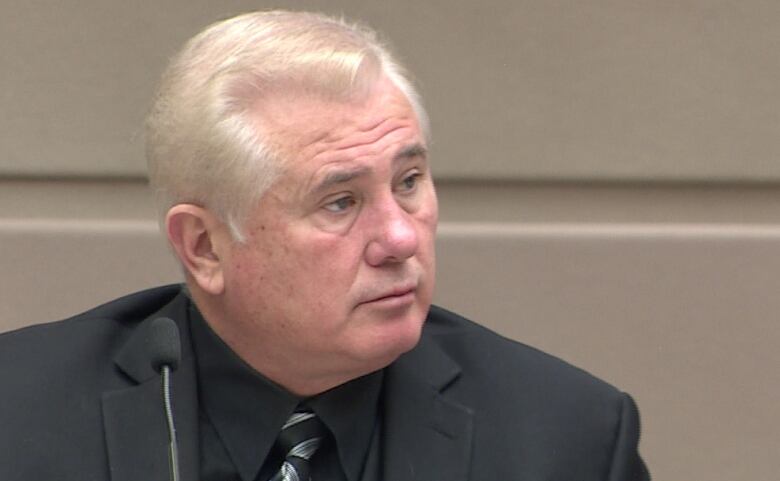Pedestrian strategy will go to vote at council today, minus lower speed limits
Administration will report back on feasibility of reducing residential speeds no later than November

City councilwill vote on 50 actions featured in apedestrian strategy on Monday, but the driving question of whether to lower residential speed limits to a specific number won't be on the table.
That's thanks to a recent committee meeting where it was decided more research was needed before committing to a less-than-50 option.
"I'm actually very vocal about the fact that Ithink that 30 [kilometres per hour] isthe right number," said Ward 9's Gian-Carlo Carra.
"We will have a broad conversation with Calgarians. We'll look at the numbers. We'll see how it impacts drivers from all over the city and we'll see how it impacts neighbourhood life."
Time and collision impacts
Administration's report to council includes a preliminary look at the impacts of reduced speeds, and outlines how it will further examine potential changes.
Citing two studies, administration said driving 30 kilometres per hour means there's an 18-per-cent chance of severe injury if a pedestrian is struck, and a six-per-cent chance of death. That's a significant reduction from 40 kilometres perhour andcompares to a 50-per-cent chance of severe injury and 21-per-cent chance of death at the current 50 kilometres per hour.
In two preliminary case studies, city staff found there was a 15to 30-second delay in a commute to downtownfrom the northwest community of Hawkwood when speeds are reduced, and a 30 to 60-second delay if travelling downtown from the southeast community of Acadia.
'Start of the conversation'

Carra supports the 30 km/h limit within residential zones, with speeds picking up once you hit busier streets.
"I think this Vision Zero approach of 30 kilometres inside and then faster as you get outside comports with the kind of neighbourhood structure we should build, and comports with the neighbourhood structure that we have," he said.
"But, you know, again, this is just the start of a conversation."
Other councillors, like Ward Sutherland, don't support lowering the limit,at least not without data to prove it will improve safety.
50-point plan
He saidmany people in his ward are concerned about speeding,but not necessarily the speed limit.
"Most of the speeders in the communities are the residents, it isn't the outside people," he said."But reducing the speed limit doesn't actually reduce people speeding. They're two different issues completely."
The goal of the pedestrian strategy is to encourage walking by making the city more friendly to bipedal transportation, through improved safety and amenities.
If council approves the strategy, plans for implementing the 50-point plan will be unveiled in the fall. Administration will report back to council on speed limit reductions no later than November.
- MORE CALGARY NEWS |Alberta unite the right group votes for new party
With files from Scott Dippel












_(720p).jpg)


 OFFICIAL HD MUSIC VIDEO.jpg)
.jpg)



























































































